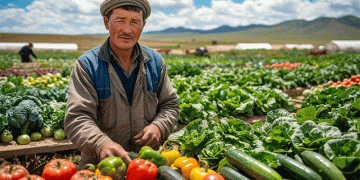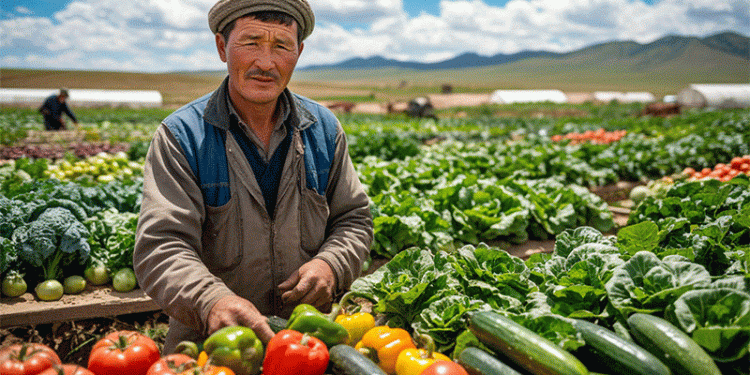The Ministry of Water Resources, Agriculture, and Processing Industry of the Kyrgyz Republic has moved beyond traditional rhetoric to articulate a powerful new vision: the modern farmer as a sophisticated agribusiness entrepreneur. This shift from viewing agriculture as mere subsistence to a complex, profitable business is not just a national goal but a reflection of a global agricultural revolution.
This new archetype, as defined by the Ministry, is a professional who leverages technology, market intelligence, and sound business principles. This vision is critical for the future of not only Kyrgyz agriculture but for farming communities worldwide striving for sustainability and profitability.
Pillars of the Modern Agripreneur: Backed by Data
The Ministry’s description aligns with global trends identified by leading agricultural bodies. Let’s examine the key traits through the lens of current data:
- Technology Adoption: The use of drones, automated irrigation, and agri-analytics is a major driver of efficiency. According to a 2023 report by the World Economic Forum, AI and precision farming technologies can increase global crop yields by up to 25% and reduce fertilizer use by up to 30%. For a water-scarce region, smart irrigation alone can improve water use efficiency by over 40%, a critical factor for Kyrgyz farmers.
- Market and Export Orientation: Moving beyond subsistence to market-driven production is essential for profitability. The Ministry’s emphasis on export is prescient. The Food and Agriculture Organization (FAO) consistently highlights that high-value and niche export products (like dried fruits, organic produce, and specialty meats) are key growth sectors in developing economies. Building a brand around “safe and quality” products, as the Ministry advises, taps into the global organic food market, projected to exceed $650 billion by 2028 (Research and Markets, 2024).
- Knowledge-Based Decision Making: The call for expertise in agronomy, finance, and marketing is fundamental. A study published in the Journal of Agricultural Science (2024) found that farmers who engage in continuous learning and use data for decisions see a 15-20% higher net income on average compared to those who rely on traditional methods. This underscores the need for accessible agricultural extension services focused on business skills.
- Teamwork and Professional Management: The shift from a solitary farmer to a “professional team” is a hallmark of commercial agriculture. Data from the International Fund for Agricultural Development (IFAD) shows that farmer cooperatives and producer organizations achieve better economies of scale, improve bargaining power, and are more resilient to market shocks. This collaborative model is crucial for accessing larger export markets and investing in shared processing infrastructure.
A Necessary Evolution
The Kyrgyz Ministry’s vision is more than an ideal; it is an urgent and necessary roadmap for the future. It accurately frames success in modern agriculture as a fusion of traditional knowledge and cutting-edge technology, hard work and smart business acumen, and local focus with a global vision. This transition from farmer to “agribusinessman” is the critical step required to ensure food security, drive rural economic development, and make the Kyrgyz agricultural sector competitive on the world stage. Embracing this model is no longer optional for those who seek to thrive in the challenging and rapidly evolving global agricultural landscape.































